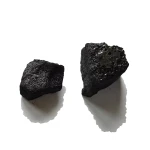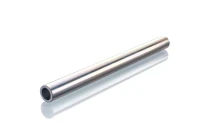- What are thread sealants, and why are they important in the hydrogen industry?
- Where are Thread sealants used?
- What are the advantages of using thread sealants in hydrogen applications?
- How is the compatibility of thread sealants with hydrogen tested, and why is it crucial?
- How do thread sealants contribute to the safety and reliability of hydrogen infrastructure?
- What metrics are associated with thread sealants and what specific performance standards and certifications must thread sealants meet for use in hydrogen applications?
- How do thread sealants ensure leak prevention in hydrogen storage and transport systems?
- What are common issues or failures related to thread sealants that have been encountered in hydrogen systems, and how are they addressed?
Browse all Thread Sealants from leading suppliers on our marketplace!
What are thread sealants, and why are they important in the hydrogen industry?
Thread sealants are chemical-based solutions that seal threaded fittings for pipe and tube connections. It is essential to seal these connections properly to avoid leaks that can give rise to safety problems, equipment performance issues and economic losses. Particularly for hydrogen molecules that are very small, it is important to properly seal the threads and close any small space that could create a leak path. As a summary- they are important because of leak prevention, enhanced safety and reliability, chemical compatibility, operational efficiency, environmental protection.
Where are Thread sealants used?
Threaded connections are widely used in machinery and fluid transport systems, and using a thread sealant is essential to close all the gaps in the fitting geometry that are present and necessary for assembly. When joining two threaded fittings, the contact area is never 100 percent, as otherwise it would be impossible to mate the parts. This is why there are gaps between the parts that must be sealed properly.
Applications of Thread Sealants in Hydrogen Systems
- Fuel Cells:
- Thread sealants are used in various components of fuel cells, including the connections between hydrogen supply lines and the fuel cell stack.
- Ensuring a leak-free connection is vital for the efficiency and safety of the fuel cell system.
- Hydrogen Refueling Stations:
- Threaded connections in refueling stations must be securely sealed to prevent hydrogen leaks during the transfer process.
- Thread sealants provide a critical barrier, maintaining the safety and functionality of the refueling infrastructure.
- Hydrogen Pipelines:
- Long-distance hydrogen transport relies on pipelines with numerous threaded connections.
- Thread sealants ensure that these connections remain leak-proof, protecting the pipeline's integrity and the surrounding environment.
- Storage Tanks:
- Hydrogen storage tanks require secure threaded connections to maintain the containment of high-pressure hydrogen gas.
- Using appropriate thread sealants prevents leaks and enhances the safety of storage systems.

What are the advantages of using thread sealants in hydrogen applications?
There are several methods of mating two pipes, most of which do not allow the pieces to be disassembled once mated. Threaded fittings offer a practical and reliable solution but must be properly sealed. Using an anaerobic-based thread sealant allows gaps to be filled and 100% of the surface to be covered, ensuring a safe and reliable seal. In addition to providing a reliable seal, anaerobic thread sealants prevent any loosening due to shock, vibration and temperature changes, while still allowing the fittings to be removed with hand tools.
-
Enhanced Leak Prevention:
- Hydrogen Sealing: Hydrogen molecules are extremely small and can easily escape through even the tiniest gaps in threaded connections. Thread sealants are designed to fill these gaps, creating an airtight seal that prevents hydrogen leaks.
- Safety Assurance: Preventing leaks is critical in hydrogen applications due to the highly flammable nature of hydrogen gas. A reliable thread sealant ensures that the system operates safely, minimizing the risk of fires or explosions.
-
Improved Connection Durability:
- Resistance to Vibrations: Hydrogen systems often experience vibrations and dynamic loads. Thread sealants provide a secure bond that resists loosening caused by vibrations, ensuring the long-term stability of the connections.
- Thermal Stability: Hydrogen applications may involve varying temperatures. Thread sealants are formulated to maintain their sealing properties across a wide temperature range, preventing degradation and ensuring a consistent seal.
-
Chemical Compatibility:
- Hydrogen Resistance: Specialized thread sealants for hydrogen applications are chemically resistant to hydrogen, preventing permeation and chemical reactions that could compromise the seal.
- Material Compatibility: These sealants are compatible with various materials commonly used in hydrogen systems, such as stainless steel, brass, and other metals, ensuring effective sealing without causing corrosion or damage.
-
Ease of Application:
- Simple and Efficient: Applying thread sealants is a straightforward process that does not require special tools or extensive training. This ease of application reduces installation time and costs.
- Versatility: Thread sealants can be used on a wide range of thread sizes and types, providing a versatile sealing solution for different components within hydrogen systems.
-
Enhanced Performance and Reliability:
- Pressure Resistance: Thread sealants are designed to withstand high pressures, which are common in hydrogen storage and transport systems. This ensures that the connections remain secure and leak-free even under extreme conditions.
- Reduced Maintenance: By providing a durable and reliable seal, thread sealants reduce the need for frequent maintenance and inspections, leading to lower operational costs and increased system uptime.
-
Environmental Protection:
- Minimizing Emissions: Effective sealing of hydrogen systems prevents the escape of hydrogen gas into the atmosphere, contributing to environmental protection and sustainability.
- Compliance with Regulations: Using thread sealants helps meet stringent safety and environmental regulations governing hydrogen applications, ensuring compliance and avoiding potential fines or legal issues.
How is the compatibility of thread sealants with hydrogen tested, and why is it crucial?
Tests of products have been conducted by external laboratories and certified by Kiwa to ensure that the product have official documentation for the customers. Providing this data is essential to demonstrate that the solutions are chemically compatible, safe, and reliable for sealing hydrogen molecules, which are extremely small.
Hydrogen testing is essential for thread-sealing products due to several critical factors unique to hydrogen applications:
-
Hydrogen Molecule Size:
- Molecular Size: Hydrogen molecules are the smallest of all gases. Their tiny size makes them particularly challenging to contain, as they can permeate through minute gaps or imperfections in threaded connections.
- Seal Integrity: Testing ensures that thread-sealing products can effectively block these small molecules, maintaining a leak-proof seal under all operational conditions.
-
Safety Concerns:
- Flammability: Hydrogen is highly flammable and poses a significant safety risk if not properly contained. A small leak can lead to dangerous situations, including explosions or fires.
- Risk Mitigation: Hydrogen testing verifies that thread-sealing products can prevent leaks, thereby reducing the risk of hazardous incidents and ensuring safe operation in hydrogen systems.
How do thread sealants contribute to the safety and reliability of hydrogen infrastructure?
Avoiding hydrogen leakage is critical for both safety and economic impact. Pipe connection points are the areas where leaks are most likely to occur, so using a suitable thread sealant can go a long way toward eliminating leaks.
What metrics are associated with thread sealants and what specific performance standards and certifications must thread sealants meet for use in hydrogen applications?
The fundamental parameter to be tested is the perfect sealing of the components under different test conditions is pressure resistance. the following two points are important to be considered during the pressure resistance testing of thread sealants.
- Measurement: Determines how well the sealant withstands high-pressure conditions.
- Importance: Hydrogen systems often operate under high pressure, and the sealant must maintain its integrity under these conditions
Currently the only one that has developed its own internal standard and is able to provide certification is Kiwa, with the AR214 standard. Other than KIWA AR 214 in the Netherlands, there are no official industry test standards related to hydrogen thread sealing, so it is critical to develop the right tools and methods to test solutions properly. Official certifications and reports carried out by external laboratories become fundamental to demonstrate the effectiveness of the solution. Thus, in addition to KIWA AR 214 requirements, companies have developed and conducted their own hydrogen thread sealing tests to provide their customers with the added assurance that these products are suitable for use in sealing hydrogen.
How do thread sealants ensure leak prevention in hydrogen storage and transport systems?
The ability of the liquid product to distribute itself on the surface and fill the roughness and gaps, before cross-linking completely, allows for a 100% contact surface, closing every minimal leak path even at very high pressures
What are common issues or failures related to thread sealants that have been encountered in hydrogen systems, and how are they addressed?
- The use of mechanical or inadequate sealing systems creates the risk of incorrect application, degradation or insufficient sealing which over time can give rise to leaks.
- This may require extraordinary maintenance interventions with safety risks and economic losses.
- Chemical solutions represent an excellent and suitable solution for preventing leaks and improving system performance.
Content contributed by Henkel Adhesive Technologies
Henkel's Adhesive Technologies business is world’s number one producer in adhesives, sealants and functional coatings for industrial customers as well as for consumers and craftsmen. Being industry and application experts across manufacturing industries worldwide, we work closely with our customers and partners to create sustainable value for all stakeholders – with high-impact solutions based on an unmatched technology and trusted brand portfolio.










